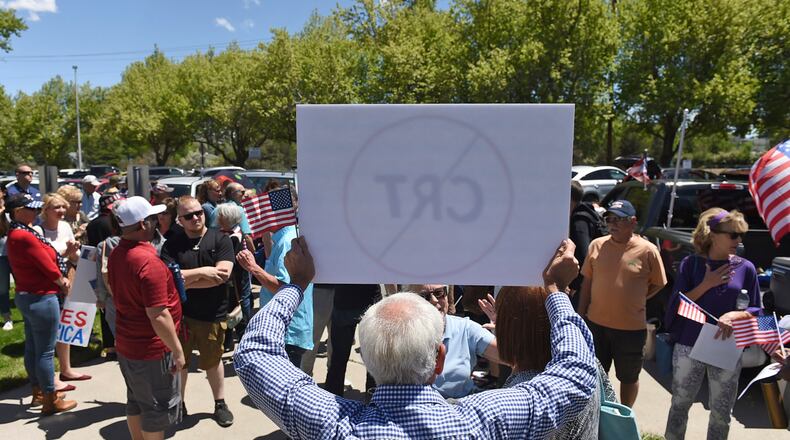I found the opinion piece titled “CRT undermines our democratic public schools” disturbing. It is hard to consider this as anything but another attempt to divide our communities and divert our attention from more serious national matters like ensuring free and fair elections, getting the upper hand on COVID-19 and addressing hunger in our communities, especially among our children. The author implies that CRT is taught in public schools. It is not. It is a college-level course of study that examines the role of our nation’s laws in the maintenance of inequality. I am surprised that the author believes it would be a farce for teachers to teach “that racism is a normal feature of society, woven into public policy and structurally embedded in our institutions.” While I agree that progress has been made over the past 70 years to right these wrongs, unfortunately all of these things are still true. The author also offers a rather simplistic solution to racial discrimination, “stop discriminating on the basis of race,” but apparently fails to realize that this discrimination must first be recognized and acknowledged. If we are indeed seeking to prepare our children for “engaged and responsible citizenship” then maybe we should stop whitewashing our history of racial discrimination and stop denying its existence.
- Lansing Ellis, West Chester
During the height of the pandemic, a bold, simple policy for hospital reimbursement was necessary. But with a majority now vaccinated, and the milder Omicron variant now dominant, state and federal hospital subsidies for COVID-19 treatment should be at least partially tied to patient outcomes. Hospitals deserve to be paid more for better outcomes and always paid the most if the patient lives. Conversely, there should never be a higher payout if the patient dies. Serious cases do require more work, but that doesn’t justify poorly conceived incentives. One option: revert to the reimbursement policies already in place for influenza.
- Daniel J. Staresinic, Mason
I believe that this nation is in need of an historical rewrite in our textbooks. All of the problems surrounding “Critical Race Theory” can be fixed by simply incorporating these racial issues into existing American History. The textbook publishers should include the uncomfortable facts along with the ones they already have in place. History is not supposed to be a “feel good” subject by just talking about the good facts, or ones where bad facts happened to us.
Juneteenth (1619, when slaves were brought to Jamestown) should be taught to educate children about the unfortunate history of people having taken Africans from their homelands, strapped into the bottom of a boat, and brought here to be used as slaves. It needs to be mentioned that many of the Founding Fathers also had slaves. The Civil War was mostly about slavery, and thankfully the Union prevailed in that war, despite it not being an official “war.” History needs to make sure to include the slavery issue strongly in that chapter.
The “Trail Of Tears” (“Indian Removal Act”) needs to be taught as well since it was Andrew Jackson who got this moving to forcibly move First Nations peoples to reservations in scrub brush areas out West. This was done so that white people could take over these prime lands in the East.
It should be taught that in 1921 the city of Tulsa, OK, had a massacre of its black community by whites who were unhappy that these people had been become successful in business and in life. The fact that no one was ever brought to justice makes it even more horrific. Black soldiers returning from World War I were not given any respect in the least during this incident.
More mentions need to be made about Rosa Parks and Martin Luther King and what they did for the civil rights movement.
The recent attacks on Black people must be included such as the one in South Carolina where Dylann Roof opened fire on a Black congregation where folks were worshipping in peace. In 1963, a Black Baptist church was also bombed. The lynching of Black people should be taught and the murder of Emmitt Till should be covered. Perhaps many more such incidents could be mentioned.
During World War II Japanese-Americans were forced into concentration camps as they were not trusted to be patriotic American citizens and were thought to possibly be spies for Japan. This did not happen to ethnic German and Italian people living here.
The Ku Klux Klan has continued to be a hate group and this needs to be taught as well, from its inception to its continuing campaign of hate.
History is history and the major ramifications of all important events should be in the textbooks.
- Thomas W. Billing, Springfield
